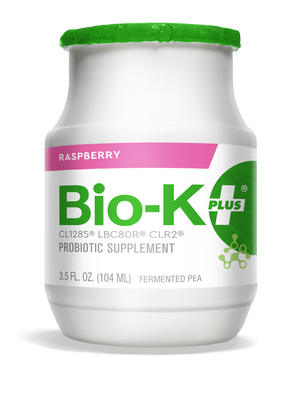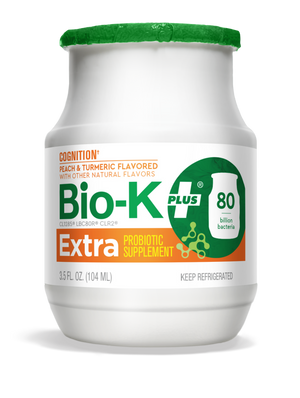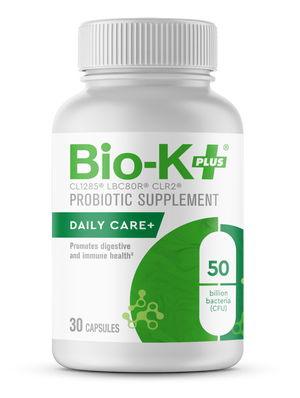What are Prebiotics?
We know that probiotics are helpful bacteria…but have you heard about prebiotics?
No, prebiotics aren’t baby bacteria! In fact, they are food for probiotic bacteria. More specifically, prebiotics are indigestible carbohydrates that fuel the fermentation of probiotic bacteria. In addition, early research suggests that high intake of prebiotics may help lower inflammation in the gut and improve calcium absorption to support bone health.
Are there different kinds of prebiotics?
Prebiotic is an umbrella term for different indigestible carbohydrates, but the most common and well studied prebiotic is known as inulin. Commercially, inulin is usually derived from chicory root and added to all kinds of foods, from frozen yogurt to breakfast cereals and granola bars. Fructo-oligosaccharides (FOS), or fructans, are found in a wide variety of foods such as whole grains like wheat, rye and barley in addition to garlic, onions, bananas and asparagus. Another major class of prebiotic foods is called galacto-oligosaccharide, or GOS. GOS is found in fermented dairy foods like yogurt, in addition to breast milk.
How much prebiotic should I take?
Research has not provided a gold standard dosage for prebiotic fibres, but dosages in the range of 5 – 20g have been shown to improve the health of the probiotic community in the gut. However, the challenge with adding isolated prebiotic fibres, such as inulin, to your diet is that these dosages may also cause gastrointestinal distress. People with irritable bowel syndrome are probably wise to steer clear of prebiotics until they speak to their dietitian. Similarly, beware of products that add just a sprinkling of prebiotic to their probiotic, as this benefits little more than their marketing campaign.
What’s the bottom line on prebiotics?
For most people, when it comes to fostering better intestinal health, stick to eating a variety of plant foods such as whole grains, vegetables and beans as part of your daily diet. The high fibre content, which includes prebiotic fibres, will go a long way towards creating a healthier gut and a healthier you. If you are interested in exploring the benefits of isolated prebiotic fibres, talk to your dietitian to see if they are right for you.
References/Learn More:
Fiber and Prebiotics: Mechanisms and Health Benefits - PMC (nih.gov)
Prebiotic diet - FAQs - Department of Gastroenterology (monash.edu)





